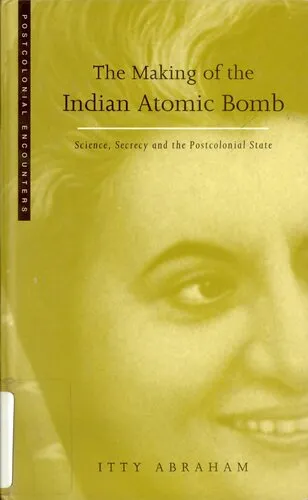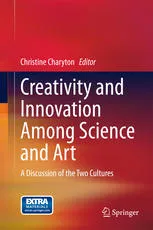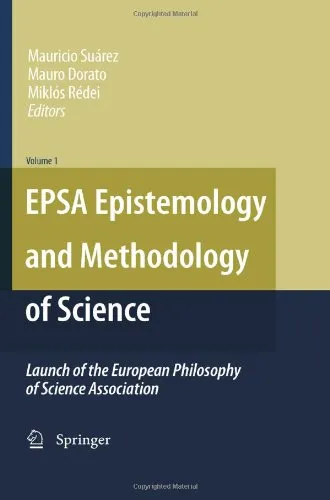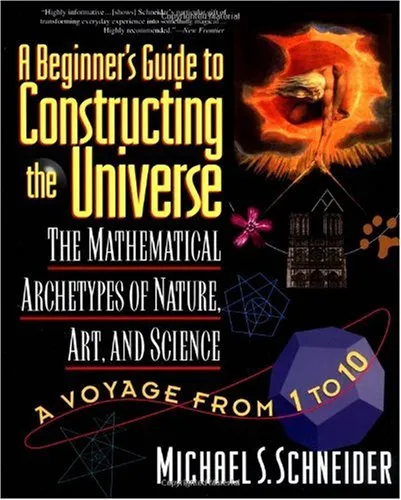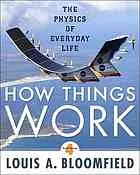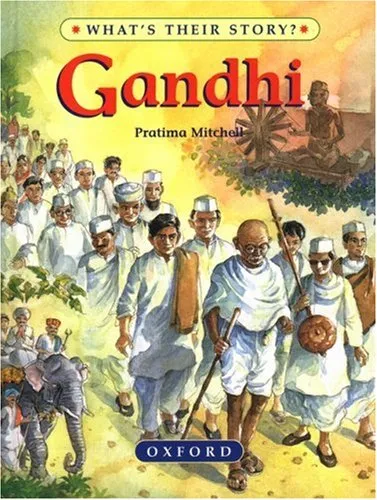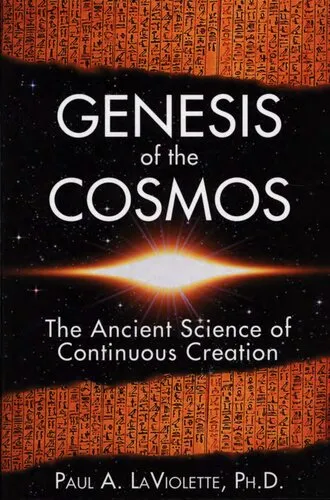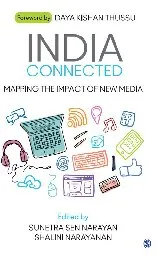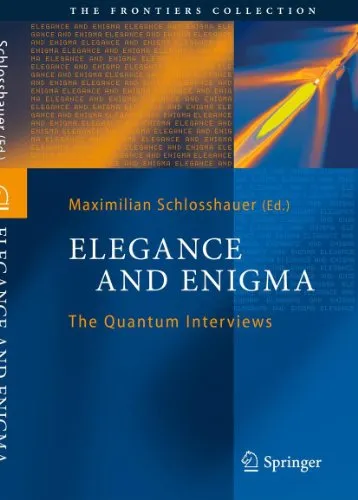The Making of the Indian Atomic Bomb: Science, Secrecy and the Postcolonial State
4.3
Reviews from our users

You Can Ask your questions from this book's AI after Login
Each download or ask from book AI costs 2 points. To earn more free points, please visit the Points Guide Page and complete some valuable actions.Related Refrences:
Introduction to "The Making of the Indian Atomic Bomb: Science, Secrecy and the Postcolonial State"
"The Making of the Indian Atomic Bomb: Science, Secrecy and the Postcolonial State" is a groundbreaking exploration of India's journey into nuclear technology and its trajectory towards becoming a nuclear power. Written by Itty Abraham, a scholar deeply engaged with postcolonial studies and the sociology of science, the book examines how science, secrecy, and state power coalesce in postcolonial India to define its atomic ambitions. While often viewed through the lens of geopolitics or technological prowess, Abraham moves beyond common narratives to uncover profound insights into the sociopolitical and cultural conditions that facilitated India’s nuclear project.
This meticulously researched work investigates not only the technical and scientific milestones of India's nuclear program but also the complex relationship between knowledge production, state secrecy, and national identity in a postcolonial context. The book questions conventional frameworks of power and explores how the legacies of colonialism continue to shape modern states like India. It is an essential read for those seeking a deeper understanding of the interconnected politics of technology and nationalism, especially in the Global South.
Detailed Summary of the Book
The book opens by situating India’s nuclear program within its broader geopolitical and historical contexts. After gaining independence in 1947, India inherited a colonial legacy of inequality, technological dependency, and political subjugation. Itty Abraham examines how this historical backdrop shaped the postcolonial state’s desire for self-sufficiency and modernity, both symbolized by nuclear technology. The narrative delves into the fascinating history of India's atomic projects, from its inception in the 1940s under Homi Bhabha to the 1974 Pokhran-I nuclear test.
Through a multidisciplinary lens, Abraham uncovers the decisive role of secrecy in India's nuclear development. Unlike transparent democratic processes, the construction of the Indian atomic bomb thrived within an opaque system, necessitating the prioritization of state control over scientific inquiry. The book critiques this model of secretive governance and its implications for the relationship between science and civil society within a democracy.
Furthermore, Abraham explores the symbolic importance of the bomb, which became a marker of national achievement and prestige despite its contentious use in global politics. He draws parallels between India’s postcolonial challenges and its nuclear ambitions, arguing that the atomic bomb ultimately served as a tool for asserting sovereignty in a world dominated by Western powers. The book concludes by questioning the ethics and future direction of India's nuclear strategy, placing it within broader debates about postcolonial identity and global inequality.
Key Takeaways
- The Indian atomic bomb is not merely a weapon; it is a symbol of postcolonial sovereignty, national pride, and modern scientific achievement.
- Secrecy was central to India’s nuclear program, creating a paradox where the state’s technological ambitions marginalized democratic processes.
- The legacy of colonialism deeply influenced the structure of India’s postcolonial state and its approach to science and technology.
- The book challenges conventional ideas about nuclear development by highlighting the unique sociopolitical conditions in the Global South.
- Science and nationalism are deeply intertwined, and India's nuclear project is a prime example of this dynamic in action.
Famous Quotes from the Book
"The making of the Indian atomic bomb was as much about building a nation in the aftermath of colonialism as it was about building a weapon."
"It is through secrecy that the state gains power over science, but it is also through secrecy that science is tied to the state’s vision of itself."
"The bomb, though destructive, also holds the contradictory promise of sovereignty and self-reliance to postcolonial nations."
Why This Book Matters
"The Making of the Indian Atomic Bomb" is more than just a historical account of India’s nuclear program; it is a profound exploration of the intersections between technology, politics, and identity in a postcolonial world. It sheds light on the complexities of state power, secrecy, and science while challenging dominant Western-centric narratives about nuclear proliferation. Itty Abraham’s work is especially significant today as political debates about nationalism, scientific development, and global inequality remain at the forefront of international discourse.
By situating India's atomic journey within the broader sociopolitical framework of postcoloniality, the book speaks to scholars of international relations, science and technology studies, and South Asian history. It invites readers to think critically about the global hierarchies that shape technological achievements and to question the ethical implications of viewing nuclear weapons as symbols of national power. In doing so, the book remains a relevant and thought-provoking contribution to the fields of political science and postcolonial studies.
Free Direct Download
You Can Download this book after Login
Accessing books through legal platforms and public libraries not only supports the rights of authors and publishers but also contributes to the sustainability of reading culture. Before downloading, please take a moment to consider these options.
Find this book on other platforms:
WorldCat helps you find books in libraries worldwide.
See ratings, reviews, and discussions on Goodreads.
Find and buy rare or used books on AbeBooks.
1419
بازدید4.3
امتیاز0
نظر98%
رضایتReviews:
4.3
Based on 0 users review
Questions & Answers
Ask questions about this book or help others by answering
No questions yet. Be the first to ask!
